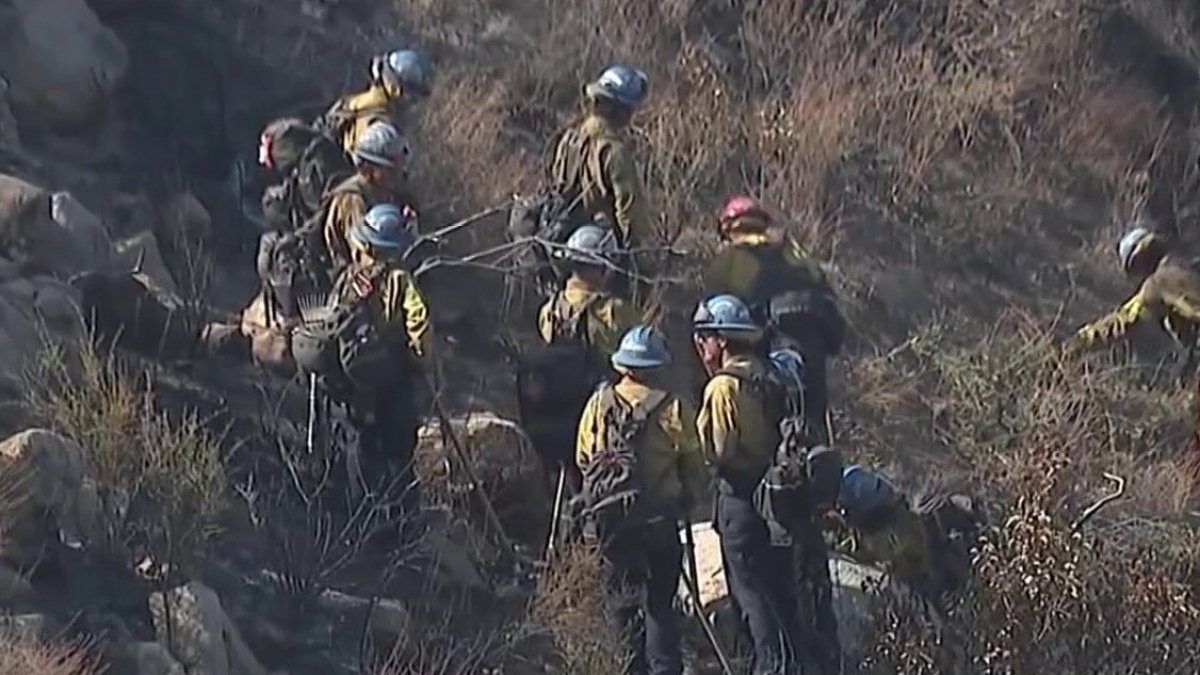Gambling On Calamity: The Case Of The Los Angeles Wildfires

Table of Contents
The Risky Gamble of Development in Wildfire Zones
The relentless expansion of urban areas into historically wildland-urban interface (WUI) zones significantly increases the risk and cost associated with Los Angeles wildfires. This gamble with nature is playing out with devastating consequences.
Urban Sprawl and Increased Wildfire Risk
The relentless creep of urban development into high-risk areas fuels the intensity and spread of wildfires. This expansion increases the number of homes and businesses directly in the path of wildfires, leading to catastrophic property damage and loss of life.
- Examples: Developments in the foothills of the San Gabriel Mountains and along the Santa Monica Mountains have significantly increased wildfire vulnerability.
- Statistics: Data from the California Department of Forestry and Fire Protection (CAL FIRE) demonstrates a clear correlation between urban sprawl and increased property loss due to wildfires.
- Inadequate Building Codes: While some progress has been made, building codes in high-risk areas often fall short of adequately protecting structures from wildfire embers and flames.
Inadequate Forest Management Practices
Decades of insufficient forest management have created a tinderbox in many areas surrounding Los Angeles. The accumulation of dry brush, dead trees, and other flammable materials—fuel loads—is a major contributing factor to the severity and rapid spread of wildfires.
- Statistics: Studies consistently show that unmanaged fuel loads dramatically increase wildfire intensity and the rate of spread.
- Benefits of Controlled Burns: Prescribed burns, or controlled burns, are a crucial tool for reducing fuel loads and preventing catastrophic wildfires. However, these are often underutilized due to funding constraints and public opposition.
- Lack of Funding: Insufficient funding for forest management and wildfire prevention programs further exacerbates the problem.
The High Stakes of Disaster Preparedness
Even with the best prevention strategies, the risk of Los Angeles wildfires remains. The effectiveness of the response to these events directly impacts the severity of the damage. Here, Los Angeles faces another high-stakes gamble.
Insufficient Evacuation Planning and Infrastructure
Weaknesses in evacuation routes, communication systems, and emergency shelters significantly hinder effective disaster response during wildfires.
- Traffic Congestion: Evacuation routes often become severely congested, delaying escapes and trapping residents.
- Lack of Accessible Shelters: Adequate shelter options are often lacking, especially for vulnerable populations such as the elderly, disabled, and those without transportation.
- Communication Failures: Failures in communication systems during past wildfires have left residents uninformed and unprepared.
The Economic Costs of Wildfire Damage
The economic toll of Los Angeles wildfires is staggering. The costs extend far beyond the immediate property damage.
- Property Damage: The destruction of homes and businesses represents a massive financial loss for individuals and the community.
- Insurance Payouts: Insurance companies face billions in payouts, potentially impacting insurance premiums for all residents.
- Economic Impact on Tourism and Other Industries: Wildfires significantly impact tourism and other vital industries, leading to job losses and decreased economic activity.
Mitigation Strategies: Reducing the Risk
To avoid a future catastrophic gamble with Los Angeles wildfires, we must adopt a proactive and multifaceted approach to risk reduction.
Investing in Fire Prevention and Mitigation
Proactive measures are crucial to reduce wildfire risk. This includes significant investments in the following:
- Fuel Reduction Programs: Increased funding and implementation of fuel reduction programs, including prescribed burns and mechanical thinning, are essential.
- Improved Building Codes: Stricter building codes that incorporate wildfire-resistant materials and designs are needed.
- Community-Based Wildfire Preparedness Initiatives: Community education programs can empower residents with the knowledge and skills to protect their homes and families.
Strengthening Emergency Response Capabilities
Improving emergency response capabilities is equally crucial. This includes investing in:
- Technological Advancements: Utilizing advanced technology for wildfire detection, monitoring, and suppression can significantly improve response times and effectiveness.
- Training Programs for First Responders: Enhanced training programs for firefighters and other first responders are essential to improve their skills and preparedness.
- Improved Coordination Between Agencies: Efficient coordination between various agencies involved in wildfire response is vital for effective disaster management.
Conclusion
The threat of Los Angeles wildfires is not merely a natural hazard; it's a gamble with potentially devastating consequences. Our current strategies, marked by inadequate prevention and unpreparedness, are a reckless bet against the forces of nature. We've seen the disastrous results of this gamble, and the cost—both in human lives and economic terms—is far too high. We must stop gambling with our future.
Call to Action: It’s time to demand action. Contact your local representatives, advocate for increased funding for wildfire prevention and mitigation, support organizations working to protect our communities, and actively participate in community wildfire preparedness programs. Learn about preparing your home and family for Los Angeles wildfires. Let’s invest in wildfire prevention and build a safer future for Los Angeles. Don’t let another wildfire season become another devastating chapter in a story of negligence. Let's create a legacy of preparedness, not of loss.

Featured Posts
-
 The Ethics Of Betting On Natural Disasters The Los Angeles Wildfire Example
Apr 24, 2025
The Ethics Of Betting On Natural Disasters The Los Angeles Wildfire Example
Apr 24, 2025 -
 Key Bench Players Hield And Payton Secure Warriors Win Against Blazers
Apr 24, 2025
Key Bench Players Hield And Payton Secure Warriors Win Against Blazers
Apr 24, 2025 -
 The Bold And The Beautiful February 20th Spoilers Steffy Comforts Liam Poppy Warns Finn
Apr 24, 2025
The Bold And The Beautiful February 20th Spoilers Steffy Comforts Liam Poppy Warns Finn
Apr 24, 2025 -
 Is A Chinese Buyout Firm Selling Chip Tester Utac
Apr 24, 2025
Is A Chinese Buyout Firm Selling Chip Tester Utac
Apr 24, 2025 -
 Remembering Jett Travolta John Travolta Shares Emotional Photo On What Would Have Been His Sons 33rd Birthday
Apr 24, 2025
Remembering Jett Travolta John Travolta Shares Emotional Photo On What Would Have Been His Sons 33rd Birthday
Apr 24, 2025
